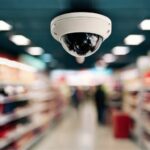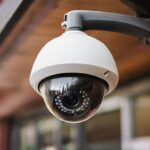Security surveillance systems are rapidly becoming ubiquitous in public spaces and private homes. Security cameras in Canada are now inexpensive and accessible to businesses and homeowners. Before installing a video surveillance system in or around your property, it’s crucial to have an understanding of Canadian laws regarding this technology. Here is an overview of key legal, technical and practical considerations surrounding security cameras in Canada.
Security Camera Laws and Privacy Rights in Canada
All provinces in Canada have laws that govern recording devices in both private and public spaces. While a federal privacy act governs employee monitoring in federally regulated sectors, provinces define reasonable expectations of privacy and how surveillance footage is managed.
There aren’t universal standards across the country but there are some common regulations, like the requirement to obtain written consent before using recording technology in sensitive locations like washrooms and change rooms. Public recording statutes typically require that covert cameras be identified with prominent signs. And penalties can include heavy fines and legal action. So acquainting yourself with provincial laws is an essential first step before considering a video security setup.
Best Practices For Home Security Cameras
There are several strategies for increasing security with surveillance cameras while respecting legal boundaries and privacy rights. Minimizing the coverage angle over shared spaces, adjacent properties or public areas is advisable. Storing footage securely and using it solely for risk mitigation is another best practice and following all consent procedures will prevent issues. Planning camera placement consciously and creatively will ensure that your system acts as a deterrent rather than as a form of unauthorized surveillance over criminals or innocent neighbours.
Security Camera Options
Security cameras come in a variety of configurations suitable for different home layouts and budgets. Digital wireless systems are now the dominant format for DIY home security setups. Wired analog CCTV systems are still used for some commercial applications but are increasingly outdated. The key differentiator in the specifications for a security camera system is whether it is Internet-connected through WiFi or operates as a local closed circuit streaming video to a digital recorder device or network video recorder (NVR). Connected setups provide opportunities for managing your cameras remotely and the convenience of mobile alerts and access. But local systems may be preferable for home surveillance for several reasons – no ongoing costs for internet data streaming, security advantages of not exposing your system to online threats and the ability to isolate system access.
Whether you choose a cloud-based solution or an off-grid self-contained system, you’ll want to consider features like night vision, weatherproofing for outdoor placement, video quality measured in lines of resolution and whether to incorporate additional deterrence tools like motion-triggered loudspeakers or flashing lights. You should also determine whether to pursue fully automated smart detection through machine learning algorithms or rely on your own analysis by real-time streaming or post-event video review. Video doorbell systems which capture visitors approaching entryways are also increasingly popular options that conveniently integrate with smartphone alerts and apps by major brands.
There is clearly a very wide range of formats, features and configurations to evaluate when planning a custom video security setup. Carefully considering your risk factors, budget, technological comfort level and legal responsibilities around recording technology is essential in defining needs and identifying the optimal cameras and system accessories for your residential situation.
Hiring a Security Camera Installation Professional
Installing a networked video surveillance system requires technical know-how and an understanding of electrical, WiFi and structural specifics of a property. While DIY camera kits provide plug-and-play simplicity, hiring a professional security camera installer is advisable for most homeowners seeking complete property coverage with advanced components like outdoor IP cameras, NVRs and integrated alarm triggers.
Consulting with a security pro at the planning stage allows you to benefit from their site evaluation, legal guidance and technical recommendations based on many years of project experience. Tailoring camera numbers, features settings, positioning and angles is key to maximizing coverage and smart home automation capabilities while minimizing gaps and issues down the line.
An experienced provider understands optimal mounting locations, cabling routes, power supply needs and networking equipment requirements unique to your layout and environment. They can often provide preferred pricing on equipment through their supplier relationships as well.
A customized security blueprint, and certified installation with clean cable concealment, testing and adjustments is well worth the investment. And an ongoing service package can be invaluable if you want assistance managing your surveillance system, updating components, providing video storage and backup services or even monitoring alerts on your behalf. Seeking a consult early in the process allows you to make informed choices on DIY vs professional installation.
Using Live Video Monitoring Services
While security cameras provide post-incident evidence, real-time monitoring by professionals can actually prevent or minimize harm from criminal activity or accidents as they occur. This is achieved by integrating your cameras with centralized monitoring systems that incorporate visual verification, smart motion detection, analytics of suspicious behaviours and direct notification systems. Operator analytical software can recognize break-ins or trespasses and instantly trigger alerts to property managers, private security personnel and first responders to intercept crimes in progress.
You can work with remote video monitoring services on an ongoing basis or on-demand when away from home. The latest platforms even enable two-way voice communication between a central command centre and your property. Having human eyes continually scanning multiple zones rather than relying solely on homeowner access to footage after incidents or questionable events provides unparalleled awareness, response coordination and ultimately safety.
It does come at a monthly premium but advances in computer vision make round-the-clock monitoring much more affordable nowadays. And combining it with security system elements like smart locks, sensors and audible deterrents can take protection to another level.
Optimizing Physical Safety with Security Cameras in Canada
Optimizing home safety with security cameras requires carefully balancing personal privacy and legal considerations. When thoughtfully placed and operated, surveillance systems can increase security without intruding on reasonable expectations of privacy in shared spaces. Understanding key regulations, utilizing available deterrence tools and engaging professional support are principles that underpin ethical and effective video monitoring implementations for any homeowner or business owner.
Trust Live Patrol for Your Video Monitoring and Verified Response
Video surveillance can provide business owners and homeowners invaluable protective oversight and key visual evidence if an incident occurs. Yet around-the-clock analysis and real-time notification are important to enable intervention while a problematic situation is still unfolding.
This is why Live Patrol offers customized installation for security cameras in Canada paired with 24/7 professional monitoring. Our experienced technicians will conduct an on-site evaluation and suggest optimal camera placements and system accessories based on your risks, priorities and legal responsibilities.
We utilize the latest AI motion sensing, smart home integrations and centralized monitoring software to keep certified operators continually scanning your cameras. At the first sign of an incident, Live Patrol triggers verified audio warnings and simultaneously coordinates response by private guards, police and fire rescue if appropriate.
Rather than hoping your cameras capture post-incident footage, have confidence that Live Patrol’s team of analysts and rapid responders can intercept criminal activity. Contact us for a live demo and see how our video monitoring and intervention services provide next-generation protection.


